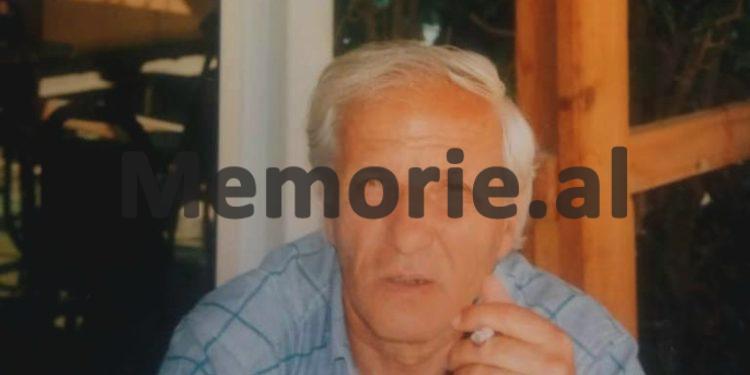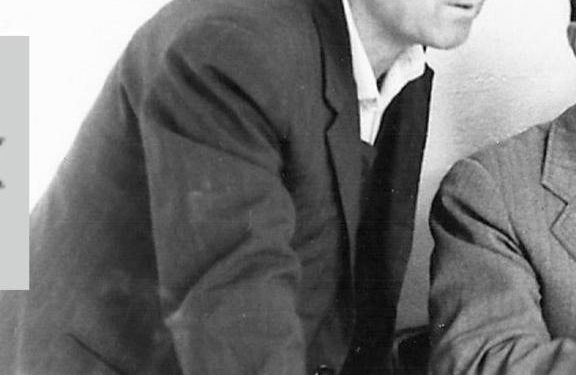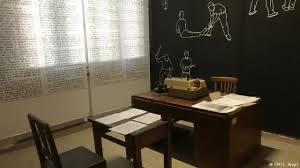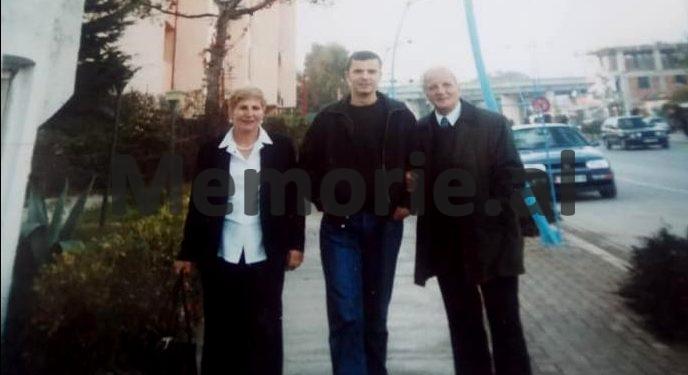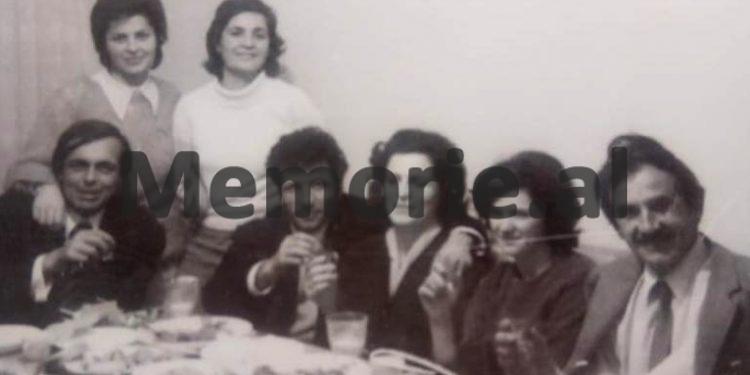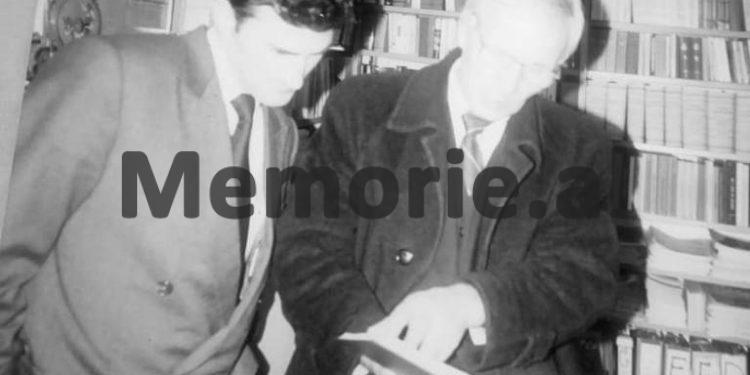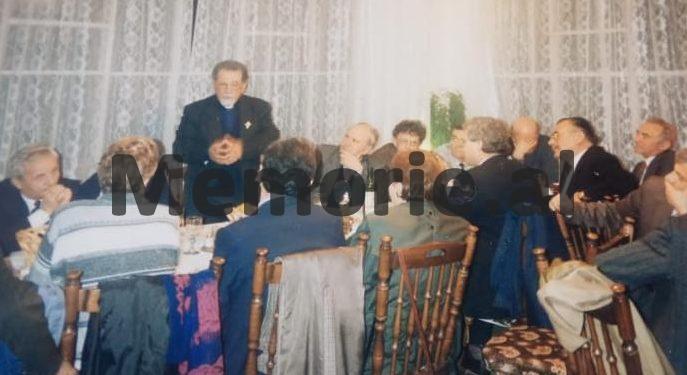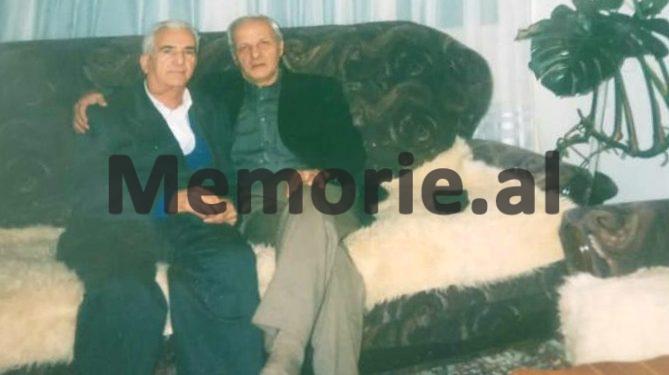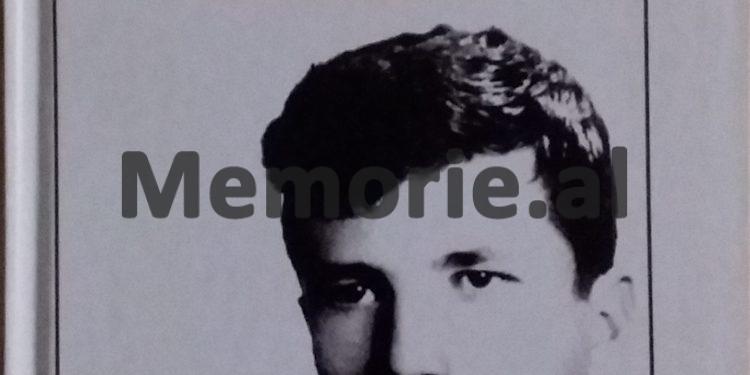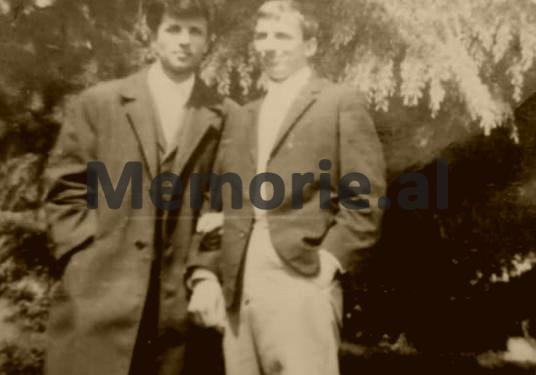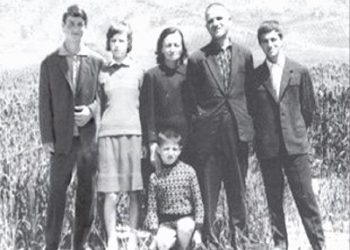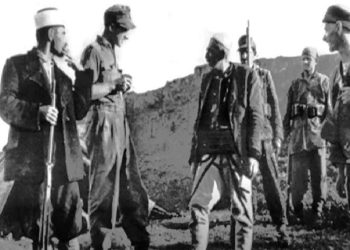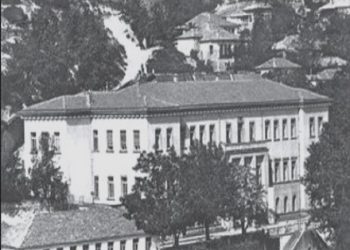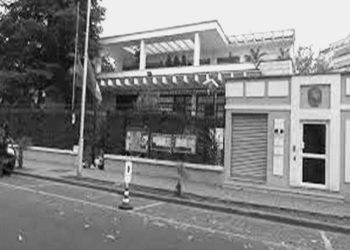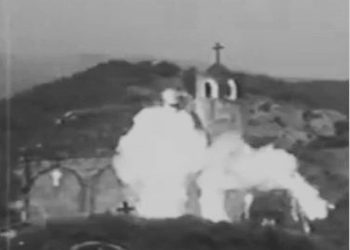Esat Myftari
Part seven
Memorie.al publishes the unknown story of Esat Myftari, originally from Peja, who was in the high school benches when he was a member of a group of young boys who opposed the official Belgrade policy against the discriminatory policy against the Albanian population living in He started working as a journalist at “Rilindja” in Prishtina, from where he was proposed as a correspondent of the TANJUG Agency, but he refused and in 1963 he was forced to flee and come to Albania, with the aim of seeking help and support. from the mother country, for the clandestine organization of the “Boys of Peja”. Numerous vicissitudes in the mother country and continuous pursuit of the State Security since the time of studies in Tirana and the period when he served as an educator in the town of Shengjin and the villages of the Coast Matë, where he was arrested in 1975, after he had officially requested repatriation to his homeland Kosovo, sentencing him to ten years in prison on charges of “agitation and prop agenda ”, which he suffered in the Spaç camp. The whole painful story of the journalist, publicist, researcher, translator, MP and diplomat, Esat Myftari, is described with a literary mastery in his book, “Your death, my life” an autobiographical novel that has just come out from the Publishing House “Lena Graphic Desing” of Prishtina, and with the permission of the author, will be published in parts by Memorie.al
The unknown story of journalist, publicist and writer Esat Myftari
Esat Myftari was born on June 16, 1940, in the city of Peja in Kosovo, where his family originally came from. He completed his first elementary school education, 7-year-old and high school, in his hometown, completing them in 1959. Also, in 1959, Esat, a 19-year-old boy, began his studies at the Faculty of Law of the University of Belgrade. A lover of history and literature, he started writing at a young age when he was in the 7-year school benches and in the faculty period, he became a member of the Literary Club “Përpjekja” based in the City of To the student of “New Belgrade”, where he is affirmed quickly and from time to time, he writes poems and critical literary views, but due to their content, he does not send them for publication.
In 1961, after successfully passing the relevant competition, Esat started working as a journalist in the daily of the province of Kosovo, “Rilindja”, where he is assigned to cover the chronicle of the city of Pristina and the Kosovo Trade Unions. In the same year, he was offered a qualification scholarship at the Yugoslav TANJUG Agency, with the prospect of becoming a correspondent outside the then Yugoslavia. But his joy at the qualifying scholarship that was destined to send him abroad was quickly dashed, as the specialization offered to him was conditional on his membership in the Communist League of Serbia, which 20-year-old Esat refused. categorically.
Meanwhile, in 1963, he participated in a group of young men who disagreed and were against the policy pursued by official Belgrade towards the Kosovo Albanians and wherever they were in their lands under Yugoslavia, and on behalf of the “Peja Clandestine Group”. , as their representative, crosses the border illegally and comes to Albania. Esat’s goal as a representative of the “Illegal group of boys of Peja”, was to establish contacts with the Albanian state and to seek various support and assistance for the well-functioning of that group of young boys, which aimed to resist the discriminatory policy of official Belgrade to the Albanian population in Yugoslavia.
In 1974, some members of this group were arrested by the official authorities of the Yugoslav Ministry of Internal Affairs, accused of participating in the events of 1964, when the Albanian national flags were unfurled in the main cities of Kosovo and when they were taken strict police and judicial measures against them. The main motto of this mass movement, which was the first of its kind in post-war Kosovo, was the unification of Albanian lands with their “mother” state, Albania.
Meanwhile, Esati, who was in Albania, as well as some of his Kosovar emigrant compatriots in Albania, gained a right to study and in 1965, he began his studies at the Faculty of Natural Sciences in Tirana, in the “Bio-Chemistry” branch. After the third year of studies, disappointed by the official policy of the communist regime of Enver Hoxha and the treatment of Kosovar emigrants in Albania, who upon their arrival in their homeland, it seemed that “from the rain they had heavy hail”, interrupts his studies and requests repatriation!
Of course, this was not approved by official Tirana and in 1969, Esat started working as a teacher in the 8-year school in the town of Shengjin, in the district of Lezha, where he worked until 1974, from where he was transferred to the village of Tale. of the Mata Coast, where he also worked diligently. As during his entire period of work and residence in the district of Lezha, Esat was regularly monitored by all means by the State Security organs, even in the school where it was said that he had been sent on purpose, as they feared an escape from his opportunity to go to Yugoslavia from Shengjin, he is arrested and sentenced to 10 years in prison, accused of “agitation and propaganda against the popular power”!
After serving his full sentence while serving his sentence in the Spaç camp, etc. (not benefiting from any reduction of the sentence), Esat was released from political prison in 1985 and returned to the district of Lezha where had worked and lived before the sentence and in 1986, he started working as a worker in the Paper Factory in Lezha. That same year he started a family and then two sons were born.
In 1990, at the beginning of pluralism, Esat took an active part in the popular movements for the overthrow of the communist dictatorship in Albania and with the establishment of the branch of the Democratic Party for the district of Lezha, at the beginning of 1991, for his past and contribution. great at the beginning of those popular protests, he is elected secretary of that branch.
Also, as a result of that contribution, in the first pluralist elections of March 22, 1991, Esat was elected a member of the Democratic Party in the People’s Assembly, representing the voters of the Mata Coast, where he had worked as a teacher until the day of his arrest in 1975.
A year later, in the autumn of 1992, he was appointed Director of the Diaspora Directorate at the Ministry of Foreign Affairs of Albania, headed by the Minister, Alfred Serreqi. In that position, Esat worked diligently until 2000, when he was appointed diplomat at the Albanian Embassy in Riyadh, where he remained until his retirement.
Since that time, Esat has been devoted to his passion, writing, studies and translations and since 2011, he has started publishing several books, which have been welcomed by critics and readers, also because of their subject matter, as well as the variant of Gegërisht that he wrote them, which is very rare in Albanian publications of the mother country!
The first book published by Esat Myftari is “Emrush Myftari” (monograph), and after him come: “Kosovo and Enver Hoxha” (study), “Political profile of Esat Mekuli” (monograph), and “Your death, life ime ”, which is an autobiographical novel, where he has skillfully and chronologically described most of his life, from family and life in Kosovo as a high school student, escape to Albania, many vicissitudes from surveillance of State Security prosecution, arrest, investigation, trial and deportation to Spaç prison.
All the events and everything described in the book “Your death, my life”, are real and the characters there are presented with their concrete names and surnames, while only those people who badly affected his life, (mainly, those of bodies of the Ministry of Internal Affairs of that time, such as operatives, investigators, police officers, heads of the Ministry of Internal Affairs and the Branch of Internal Affairs of Tropoja, Lezha, witnesses in his trial, etc.), the author was has only changed the names, giving them their real surnames.
Continued from the previous issue
Excerpts from the book “Your death, my life”, author, Esat Myftari
“Competent” investigator from Tirana, for deciphering notebooks with notes!
For more than two months, the investigator shook two notebooks with notes from the National Library files in front of his nose as a threat to his final unmasking. In fact, he was somewhat right: they contained titles of books in foreign languages that Ridvani had recorded while in Tirana. He had taken them with him from there when he left for temporary loans by mail. But they, in the fantasy of the investigator Grigor Selenica, resembled apocryphal signs, the decomposition of which he would do very quickly with the help of an expert of the Center. Therefore, he had organized this investigative session differently from other times.
Not at night with unnecessary knocking on doors and shaking keys. Not even with vain cries to dispel fear and false authority among us stuck behind heavy doors. At about ten o’clock in the morning on a sunny day, they laughed at the end of May, took him quietly and took him to the investigator. When you enter, his eyes remain on a somewhat blurred figure, of those weighty persons of the Ministry of Internal Affairs, who, it seems, had come with a special task for him.
But the investigator, who was our greatness behind his desk, did not let him deal with speculation for long.
– It is my friend Ilia Samara, from Tirana, who will tell us what your two notebooks, full of scribbles, hide.
After these words, the investigator crossed his hands over his chest to listen with indifference to increase the dialogue that would take place between them. Ridvan, on the other hand, realized that he would have the opportunity to have fun with her. The newcomer had put his little black bag in the corner of the table and had in front of him a thin green folder with a paper tray on top, of course for the notes he would keep. He did not consider it necessary to make any of those professional introductions, because, from what he had read from him and about him, it turned out that he, Ridvani, despised the meaningless formalities of boasting …
The investigator had remained an outsider. He did not understand the words and terms, much less the fragmentary phrases in German and, occasionally, in English, French, Italian and Russian, that Ridvan had a working language. The investigator Grigor Selenica was a typical person of the time: without knowledge of foreign languages, without curiosity about philosophy – his whole culture was summarized in some quotations separated and inserted in university textbooks, where big names like Hegel, Kant, Nietzsche, etc. ., belonged to them as idealists, with harsh definitions of Russian theorists.
Whereas Ilia Samara knew Ridvani by name and before coming here, he had read his materials (Strange: 5 decades later, when he withdrew his file, without being reflected in the form-sheet over 12 officers who, time after a while, for their operational purposes, they had returned to his youth writings and, in the margins, had remained their personal notes and glosses, then of course full of meaning, but which now resembled like cofta chicken legs).
Thus, to the investigator, he had a natural advantage: he came from Central as his superior and had been in Europe, albeit in its eastern part, as well as speaking German flies send. At this point he was an exception to many others in the department. The best cadres were educated in Belgrade and Moscow and the many Russian advisers in Tirana for 12 years in a row, had introduced and dismantled the methods of NKVD for fun. In addition, his German had a lot of authority in the interior opinion of the ministry. Probably because the Albanian people themselves had few or no moments of enmity with the Germans. Even in the conscience of the Albanian illiterate, the conviction was ingrained that the creation of the Albanian state was due to this race.
– And you, where did you learn German? – addressed Ilia.
– In Tirana.
– At who?
– To Professor Vangjeli, in Natural Sciences. We were told that it was Çabej’s idea and initiative – Ridvani specified, not without purpose.
– Clearly, and you run to enter the club immediately. In addition, we know that in the room, on the bed, keep Thomas Mann and not that of our leader – said the decoder.
Investigator: You defendant, you ignored our literature, you were preparing to become a dissident!
– He was my favorite writer since I read the novel “Tonio Kröger”. So, it was just literary sympathy.
– Not only. However, your passion for foreign languages suggests other things as well, especially when they were taught at the expense of the branch of the branch of your choice and not imposed on you, for which you had received the right to study, and Stock exchange. We know another thing: that you deliberately created a false image in others, but that could deceive your classmates who were 6 years younger than you, but not us.
– This wish of mine was earlier, so it had no second purpose, in the sense that you are thinking.
– Look, defendant Ridavan, we saw and analyzed your library files. It turns out that you have completely ignored our literature as well. Were you preparing, then, after repatriation, to take a dissident stance? The attitude of the man disappointed by the two states?
– Dissent means politics, and I had decided to give it up forever.
– Even your excursions in Permet with Ziso Vangjeli, were in vain?
– I did not look for Ziso Vangjeli, but I found him. There you settled me for living, I did not even know that man was excited!
– Well, now the wish to continue the company with him is fulfilled: go and blow out as much as you want in Spaq. What about bookmaker Demin, how did you meet him?
– He was just a licensed bookseller.
– What were the requests you made to him?
– Of course, the books that were missing in the bookstore.
– There are more
– I do not know.
– What was your interest in the Franciscans?
– I grew up with Northern literature.
– Leave these divisive classifications, you loved them because they were against our system. This seems obvious.
– What is wrong with “Visaret e Kombit”?
– Or how two Don Quixotes did you want to revive the Cham issue? We have long known him as the scapegoat who grumbled down and up about the Greek massacres.
Ilia’s cynicism was given the opportunity to give his wife a smirk with the muffled voice of investigator Grigor Selenica, the only case in which he came alive during this session. Ridvani boiled inside and objected in questioning form.
– Why a corpse?!
– Because Chameria is empty land!
– The right of return, as far as I know, does not become obsolete Then we have thousands of living, aware and energetic Chams.
– Do not teach us a lesson about the Chams, we know them better than you. What is your request to organize the literature of Kosovar emigration in Albania?
– I can’t understand you.
-What were those frequent visits of yours to the Writers’ League when you were not a member?
-Curiosity and pleasure. There I also had acquaintances, with the same or similar state of mind as mine. What was wrong here?
He rummaged through his bag and took out a notebook letter from there and read: “On May 3, 1968, in a cafe in Tirana, you said that in the example of German writers, we Kosovars here should create our own emigration literature. In this way, we will have a free hand to express our view of the Serbian occupiers. The day will come, later, when she will integrate into national literature with its own historical merits. Is this true?
– I do not remember saying exactly that, but I liked it! If it’s true I said it, I accept it.
– Why take the German model, when we also had emigration literature?
– Yes, because such Kosovar literature would have the opportunity to stigmatize the national oppression in Kosovo and would not implicate the Albanian state. I think this would be a relief for Kosovo writers, who enjoy stylistic freedom, but are prevented from addressing national issues. Brothers Mann, Brecht, Zweig and many others, had been extremely successful. Why not learn from them?
– Which shows that in all the main lines you have been oriented against us.
– I was not against you, but I followed my logic.
– Ali Hoxha, Hoxha Alia! Okay, I had that. I find that your notebooks contain permissible notes, but, anyway, they reflect your formation. And this formation has led you to where you are today. It was your choice, so you have no one to complain to!
Ridvani was silent and did not comment on his words. Even investigator Grigor Selenica lost that first momentum and adapted to the situation.
Officer Ilia Samara left with a smirk, though with a thoughtful look, which Ridvani found difficult to deviate from. But he liked that he came and went in a human tone, which is unique in these nights of Albanian investigators.
Nostalgia
On the other hand, he did not accept anything from Simon, although he had offered him several times to share something with him, one or two eggs or a few olives, for which his mouth dropped lang. But, this abstention of his, also had its good side and a bit comical. The other prisoners, politicians and ordinary people alike, considered this day of the meeting to be a day of celebration: not only because they would see the loving faces of the family, but also because they would improve their poor diet. These days, there were frequent movements and rattles of doors, dungeons that looked like closed coffins, suddenly turning into harvest fields, even with slightly saddled horses. Towards late afternoon, when the digestion process was usually over, the two baths at the end of the corridor barely withstood the bloating of the abdomen. Ordinary defendants in particular stood out, who were generally more vocal, more Serb, and somewhat disregardful of the court decision that awaited them.
Tekembramja, every action had been done with pre-calculation and more or less knew by heart the limits of punishment set by law. And these politicians, from the first day, were under the pressure of the flu definition of guilt, because every word expressed somewhere, once, in many cases completely forgotten, could be resurrected like a vampire and point the finger at them and changed the “internal conviction” of the investigator. Ridvan, on the other hand, was quite calm, and his digestive system followed the same rhythm, as there was no meal overload or menu change.
Around ten o’clock, the guard was told to collect the ballast and go out with them to the conciliation. The sun had already cast its rays over that small and coveted courtyard, the surrounding walls had long been warm and radiant, and the clear sky with its deep turquoise promised a hot day with no weather fluctuations. They sat down where the shadow of the wall fell and folded their ceilings like a bed. After being told that they would spend the whole day there until the limestone dried up, they found a piece of tile and painted on the cement with its red a large little thing, dug and found pebbles stained with soil and started their game… But they quickly gave up, because the game was not haunting their fantasy at all.
– Vain game – said Simon and went over your stones with his hand to break their order. Ridvani did not make any reprimands, on the contrary, he lay on the blanket and closed his eyes. A slight nonsense helped him to forget for a while Simon and the office above the conciliation where he knew that the head of the branch was working and maybe he could observe their movements from behind the curtains.
And he may have been right, because Ridvan had been warned that he was not allowed to do gymnastic exercises such as star, pump or vertical during airing. In fact, the only time he had broken this rule, he had only wanted to prove for a few moments how much strength he had left and not to challenge anyone in the offices above. God save us, it would be a great folly to step aside with them, even with implication. In determining the defendant’s conduct, there were a number of rules, the non-observance of which entailed the right to punishment.
Ridvani removed his sweater and shirt and spread them on the ceiling in the hope that along with the mold, some of that bad mother would disappear. As he remained in the canopy with his slender hands and flashy muscles, he turned his back on the sun. And after a while, he had to cast his shadow again so that his skin would not burn. But when he took off his socks, he was terrified: from the soles of his feet to the soles of his feet, the mixed layer of dust and moisture that resembled a wild, crumbly plaster, which he barely removed. Eventually her thin, white skin came to light, with a visible network of still healthy capillaries, which, however, calmed her down.
For lunch they brought soup from the soldiers’ cauldron, with chunks of chicken floating in the greasy liquid and fresh, soft bread. With his thick aluminum spoon, Ridvani separated the meat at one end of the plate to eat at the end and passed it through the palate once in a while so that the taste of the meat would remain in our mouths for a long time to be forgotten. Moreover, his whole body was participating in this unexpected taste: the soup that slid the amber through the throat we said and the intestines that gurgled like a mixer and that would distribute the last food through the deficient parts of the body, for to feel more alive in the mind as well. “We have no choice but to beg for coffee,” he told Simon sharply. But he did not answer. As never before he was immersed in silence, without showing any cause. He did not give any assessment for the dish either. But it was his right, so Ridvan did not take it further.
After wiping the plates with bread pulp, suddenly, Simon called as in parentheses:
– Ridvan, we are completely free here today, I think there are no bugs.
– Even?
– I want to discuss with you a topic that has long bothered me.
– Yes?
– Do you believe in God?
Ridvan’s surprise was complete. It had been over ten years, since the demolition of the cult houses, that this theme was generally banished from the open assemblies of the people and folded into the deep privacy of each. While mixed marriages even in formerly fanatical settings, or described as such – especially the numerous flirtations of couples of different faiths – were almost proving the justice of the atypical political decision taken by the communist government. Moreover, it seemed as if the removal of an excess burden seemed to be welcomed with pleasure, leaving a legacy.
“To be honest, I don’t even know,” Ridvani replied.
– I am asking you because my family is divided in two and I myself have not yet taken sides. My mother believes and, of course, when there are no strangers in the house, she attends Orthodox holidays and rituals despite her father’s objections.
Ridvan was reluctant to say “her right,” but refrained.
– However, this is a specific condition of ours! – said Ridvani.
Exactly! – Simoni stated to encourage Ridvan’s reasoning – I have been told that there are different interpretations abroad. I’m curious to know how others see us.
-No wonder! said Ridvani. And, in order not to arouse doubt in himself, he followed his own way: he quoted foreign interpretations. – Before I was arrested, I heard two interesting comments, one on Radio France and another on the BBC, but in fact they referred to the same Serbian source in London. This dissident of the Bogoslovia of Prizren had said that this step of the Albanian leader was with a very long shot, which had filled him with joy.
– With happiness?!
– Yes. According to him, the Albanian leader is not essentially an atheist, but a person deeply against Islam. By setting up these obstacles, he said, the Albanian leader aims to weaken to the end the religious feelings of ordinary people and, thus, prepare his people for a spiritual transition to Christian Europe. Therefore, he repeats to the annoyance the thesis that “we, the Albanians, are Europeans” so that, when the moment of opening the country comes, the vast majority of Albanians are ready for their evangelization and accept it without shock, why would it seems to them like a common ritual. In his exaggerated conclusions, he said: “The still virtual objective of evangelism is to obtain a layer of ex-Muslims who would probably accept the Reconquista, only to be accepted as Europeans. And as the main source of recruitment, he counted Bektashis and atheists.
“I do not believe it,” said Simon, half-crying, but his face shone. – What else did he say? Memorie.al




